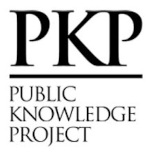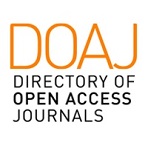Guardar el movimiento, mover lo guardado
DOI:
https://doi.org/10.29147/datjournal.v8i2.686Palabras clave:
Digitalidad, Literatura Digital, Mídium, Atlas da Literatura Digital BrasileiraResumen
En este artículo tratamos de explicar la afiliación a un desarrollo teórico que considera el sintagma “literatura digital” como un concepto, discutiendo la cuestión técnica que está en el corazón de su legitimidad. El problema de la digitalidad está basado en una perspectiva discursivo-midiológica, que opera con la metodología MO/ OM propuesta por Régis Debray (2000). De acuerdo con esta perspectiva, la descripción de la relación entre Materia Organizada y Organización Materializada nos permite comprender la dinámica sistémica en la que las matrices de sociabilidad (instituciones discursivas) producen objetos técnicos que funcionan como vectores de sensibilidad (dispositivos que dan lugar a disposiciones). No hay neutralidad en la técnica: la tecnoesfera corresponde a una psicoesfera, según Milton Santos (2000); ahí se producen, entre estas dimensiones de lo vivido, fugas, derivas, transformaciones – un movimiento histórico, socialmente organizado, políticamente disputado. En estos términos, el Atlas de la Literatura Digital Brasileña es visto como un gesto técnico crucial para el gesto epistemológico y político que configura un Observatorio.
Descargas
Citas
DEBRAY, R. Transmitir. O segredo e a força das ideias. Trad. Guilherme Teixeira. Petrópolis: Vozes, 2000.
FLUSSER, V. O mundo codificado. Trad. Raquel Abi-Sâmara. São Paulo: Cosac Naify, 2007.
MAINGUENEAU, D. Discurso Literário. Trad. Adail Sobral. São Paulo: Contexto, 2006.
ROCHA, Rejane C. Fora da estante. In: Nueva Revista del Pacífico 2021, n. 74, pp. 290-309. DOI: https://doi.org/10.4067/S0719-51762021000100290
_____ . Literatura Digital. In: RIBEIRO, Ana Elisa; CABRAL, Cleber Araújo. Tarefas da Edição. Belo Horizonte: Impressões de Minas, 2020, p. 80-84.
SALGADO, Luciana S. A dimensão algorítmica dos discursos ou como a íngua se textualiza nos mídiuns digitais. In: ABREU-TARDELLI et all (orgs.). Pesquisas em Linguagem: diálogos com a contemporaneidade. Campinas: Pontes, 2021.
_____ . Mídium e mundos éticos: notas sobre a construção do Observatório da Literatura Digital Brasileira. In Estudos da Língua(gem), Vitória da Conquista, v. 18, n. 3, p. 33-53, set-nov 2020. DOI: https://doi.org/10.22481/el.v18i3.7943
SANTOS, M. Por uma outra globalização – do pensamento único à consciência universal. Rio de Janeiro: Record, 2000.
______ . Técnica, Espaço, Tempo. Globalização e meio técnico-científico informacional. São Paulo: Edusp, 1994.
ZUBOFF, S. The age of surveillance capitalism – the fight for the human future at the new frontier of power. Nova York: Public Affairs, 2019.
Descargas
Publicado
Cómo citar
Número
Sección
Licencia
Derechos de autor 2023 DAT Journal

Esta obra está bajo una licencia internacional Creative Commons Atribución 4.0.


























